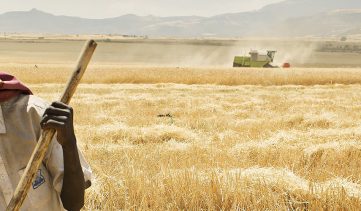
Increasing fruit and vegetable consumption is an important component of a shift towards healthier and more sustainable diets. A Lancet Planetary Health article finds only 40 countries, or 36 percent of the population, had adequate availability of fruits and vegetables in 2015 according to age-specific analysis using World Health Organization minimum targets. Along with economic growth, public policies must target constraints to producing and consuming these foods and reducing food waste to close this gap.
Additional highlights from this week’s Compact2025 News in Brief include:
- The latest special issue of the IFPRI Insights newsletter shows the severe impacts of COVID-19 restrictions on Ethiopia’s poor and warns against export restrictions that could raise rice and wheat prices—potentially leading to a rise in global hunger. This issue also highlights a blog on tracking policy responses to COVID-19—see IFPRI’s COVID-19 webpage for more evidence, blogs, tools, and events.
- The Global Landscapes Forum (GLF) will host a digital conference on transforming food systems in a time of crisis from June 3-5. As part of the global drive to “build back better” after the coronavirus pandemic, the conference will host over 100 experts, activists, chefs, and others to speak on innovations and actions to transform food systems for human and planetary health.
- The 2020 ANH Academy will bring together a community of researchers, practitioners and policymakers from across the world working at the intersection of agriculture, nutrition and health to foster knowledge exchange, innovation and learning, touching on COVID-19's impacts on our shared work. The virtual ANH2020 will consist of Learning Labs (June 23-25) and a research conference (June 30-July 2). Registration is free for attendees, though seats are limited.


